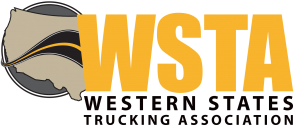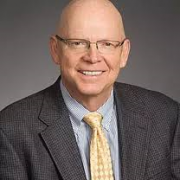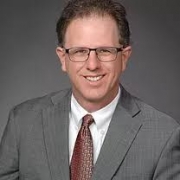I’m hoping by now that all of you are aware that California’s Supreme Court on April 30th unanimously (7-0) adopted a new test concerning independent contractor analysis that generally assumes workers are employees first, unless they can pass three different and difficult tests. The case is referred to as Dynamex Operations West, Inc. v. The Superior Court of Los Angeles County, No. S222732.
The so-called new test is technically referred to as an “ABC test.” According to the court, the test allows a worker to be properly classified as an independent contractor (if no state wage order applies) only if the hiring entity establishes:
- That the worker is free from the control and direction of the hirer in connection with the performance of the work, both under the contract for the performance of such work and in fact;
- That the worker performs work that is outside the usual course of the hiring entity’s business; (this is the toughest test to overcome), and;
- The worker is customarily engaged in an independently established trade, occupation or business of the same nature as the work performed for the hiring entity.
The ABC test presumptively considers all workers to be employees, the Court said, and permits workers to be classified as independent contractors only if all three legs or prongs of the test are satisfied.
We have provided a quick reference overview of the decision and the many problems it is likely to cause our industry.
So What Does This Mean to Our Industry and the Association?
The bottom line is …the decision will likely affect every member, both IC’s and those that utilize IC’s, and that means about 95% of the membership. Only those that utilize 100% employees or IC’s that work direct such as pool diggers are OK…the rest are in trouble!
What’s really shameful about this decision is that (we are assuming) it’s also retroactive and liabilities can go back up to four years according to existing state labor laws. The CA Supreme Court decided not to rehear the case focused exclusively on retroactivity, not its original decision. Please see the Case Timing Analysis!
What is WSTA Going to Do?
On May 28, the Executive Committee (EC) of the association met via conference call with the WSTA staff and legal counsel. We discussed the decision and the effects of the case at great lengths and the options we had available. The EC chose two paths to support. The first was to sue the state using a variety of preemption arguments and the other to utilize legislation to help amend or lessen the decision’s effects.
The EC directed me to work with counsel and establish a cost of litigation, which was done by Brooks Ellison and Pat Whalen. As it stands the costs are likely to be around $500,000 if we need to go before the U.S. Supreme Court.
We are now reviewing a draft of the lawsuit and it should be circulated the week of July 9th, and shortly after filed in the United States District Court for the Eastern District of California. To meet our legal team, see this article.
Many Still Remain Clueless
I have a good friend who recently retired from government work but still wanted to work, so she got her real estate license. I said to her, “are you going to be the broker’s employee?” She said no, she’d be an agent, independent contractor (IC). I told her she was likely going to be an employee of the broker….her response was…“what do you mean?” I explained the Dynamex decision and she said….really…“maybe I should ask the broker I’m planning on working with about all this?”
I believe that while we remain focused on the trucking industry, there are virtually thousands if not hundreds of thousands of workers who happily choose to be IC’s will be reclassified as employees as a result of this ridiculous Dynamex decision!
You think it’s costly to live in this state now (especially housing and energy), just wait until this social engineering decision is amortized into the COLA equation. There is a tipping point in this state and it’s the nearest that I have ever seen it!
CalChamber Effect (Legislative Action)
WSTA has been a member of the CalChamber since 2002. Incidentally we are also members of the U.S. Chamber since 2006. I went to the CalChamber’s website and searched using the word Dynamex and nothing really came up. I then called there and was given a non-answer and asked that the VP of the legal department call me. Both the CalChamber and the US Chamber jointly filed a pretty good amicus brief in this case in 2015 and were obviously aware of it….but probably had no clue the court was going to adopt the ABC test.
Undeterred, I continued to call the Chamber to find out their position. While I was doing this, on May 20, they submitted a coalition letter with about 75 member names and logos mostly associations to Gov. Brown and the legislature. You can read the “Dynamex Decision Chamber Coalition Letter” on our website here.
I was kind of shocked that the Chamber did not reach out to us or anyone in the construction industry that are members. Ultimately, I was contacted by the Chambers Sr. VP of Policy and she said that they did reach out to the construction industry and were told, “the decision did not really affect them”…I’m serious!
As for why we weren’t contacted, she noted that we were just an HR Resources member and not a “Policy level” member. One would think that this should have little to do with such an important issue. I guess we will have to up our membership to the “Policy” level.
The bottom line is that the CalChamber is probably the best organization to affect or have any hope of lobbying for a legislative solution to this decision. We will keep you informed on this!
On another note regarding the Chamber’s efforts, our lobbyist in Sacramento reported that in addition to the Chamber, many varied business interests are involved in a potential legislative fix. Many of those groups are represented by members of the “gig economy,” like Uber, Lyft, Amazon, Postmates, etc. who obviously see a massive threat to their whole industry.
Given labor’s influence at the Capitol, the “ask” at this point is to temporarily halt the application of Dynamex in California until next year (or even two) so that the Legislature can thoughtfully vet comprehensive legislation on the matter, which could include carve-outs and variations on the ABC test.
We have been stressing that the “B Prong” has already been found to violate federal transportation laws (F4A) in other states, thus it would be appropriate for the CA Legislature to exempt trucking from the B Prong. At this point, leadership in the Senate and Assembly, as well as the Governor’s office has all been briefed about the massive negative impact this will have on California’s economy.
Apparently it is the Speaker’s office that is most pro-labor at this point and is the most resistant to a temporary fix. While several Democrat Assembly members are interested in helping, they have indicated that swaying the Speaker will be essential.
CalChamber’s Dynamex Coalition
We were told by CalChamber’s Sr. VP, Policy, Jennifer Barrera that they had numerous meetings in the Capitol over the last month with Legislators and their staff. The Chamber promised to continue to schedule and attend educational and out-reach meetings and will provide updates.
Recently a subgroup of the coalition met with four different PR Firms to discuss a PR campaign over the next 60 days to help achieve some major goals for a legislative solution. The Chamber hired Becky Warren of Elevate Public Affairs (http://elevatepublicaffairs.com/) to help with the PR/grassroots efforts. There is no question that in order to be successful we will absolutely need to have a significant PR/grassroots effort. The Chamber had heard from several Legislators that they needed a far stronger grassroots effort.
The budget from each PR Firm was consistent, with an estimated budget of approximately $400,000. Accordingly, they are asking each group to contribute $50,000. Certainly, if you cannot reach that amount but can contribute something less, they appreciate that as well.
So How Can Members Help?
There are a number of things that members can do to help:
- Legally:
- Contribute to our F4A Legal Fund and file a declaration when asked to by WSTA
- If you’re a broker, reach-out to all your IC’s and explain the issue…we can help!
- Suggest that they also join the WSTA and contribute to the WSTA Legal Fund.
- Legislative: Join the Chamber…WSTA is a 16 year member. The Chamber is aggressively pursuing a legislative solution and we are members of their coalition
- Members can separately write a letter, and even talk to their state assembly person or senator. To do this, just go to this website http://www.legislature.ca.gov/your_legislator.html and enter your address and either write or call to set-up a local appointment.
- If you draft a letter, we suggest that you use your real-life business situation and explain why you choose to be a independent contractor
Some Members Are Already Being Proactive
We were recently contacted by a member that follows what is going on and understands the threat this decision represents. Darren Morehead of a Sacramento area based trucking business wanted to send a letter to about 200 local IC owner-operators they contract with to explain the decision and what every trucker should consider…joining the WSTA and contributing to our legal fund. Hopefully all IC’s and brokers do the same. To view the packet, go to the WSTA website.






